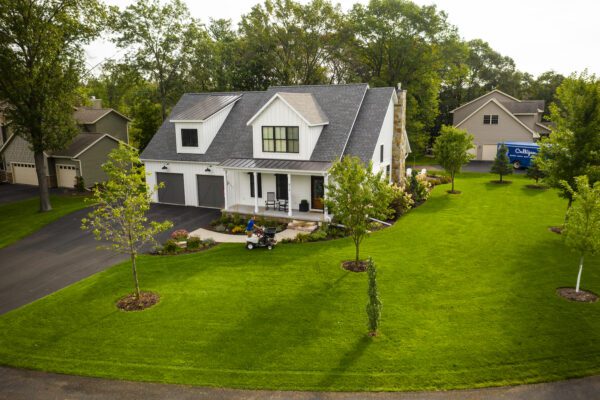When it comes to having a green, healthy lawn in Nebraska, you have to be particular about the type of grass you use. Different types of grass fare better in different climates and soil types. If you’re not sure which type of grass is best for your home, don’t worry! We’re here to help. In this blog post, let’s discuss the best grasses for Nebraska and how to care for them.
Nebraska is located in the Great Plains, which means it has a continental climate. This type of climate is characterized by hot summers and cold winters. The average temperature in Nebraska ranges from 20 to 85 degrees Fahrenheit.
Cool-Season Lawns
Because of its location, Nebraska experiences all four seasons. This means that you’ll need to choose a grass that can withstand both extreme heat and extreme cold. There are several types of grass that will do well in Nebraska’s climate, but we recommend using Kentucky bluegrass or tall fescue for cool-season grasses.
Kentucky bluegrass is a popular choice for Nebraska homeowners. It’s a hardy grass that can withstand heavy foot traffic and long periods of drought. Keep in mind that this grass type does require more TLC than most in order to produce the deep green color and velvet texture that people love and expect.
Tall fescue is another great choice for Nebraska lawns. It’s a deep-rooted grass that can tolerate periods of drought and extreme heat. Tall fescue also has a fine texture, which makes it perfect for using in high-traffic areas.
Warm-Season Lawns
If you are in southern/warmer parts of the state, you may want to consider using a warm-season grass type, such as zoysia or Bermuda. Warm-season grasses are more tolerant of heat and drought than their cool-season counterparts.
Zoysia is a drought-resistant grass that can tolerate long periods of heat and humidity. It’s a popular choice for homeowners who want a low-maintenance lawn. Zoysia does have a few drawbacks, however. It goes dormant in the winter, which means it will turn brown. It also has a slow growth rate, so it may take longer to achieve the desired results.
Bermuda grass is another option for warm-season lawns. It’s a fast-growing grass that can handle high temperatures and long periods of drought. Bermuda is often used on golf courses and other athletic fields because it can withstand heavy foot traffic. The main drawback of Bermuda is that it is a high-maintenance grass. It requires frequent mowing and watering in order to keep it looking its best.
Caring For Cool-Season Lawns vs. Warm-Season Lawns
Now that you know the best grasses for Nebraska, let’s talk about how to care for them. As we mentioned earlier, Nebraska has a continental climate, which means that it experiences all four seasons. This will affect the way you care for your lawn.
If you have a cool-season lawn, you’ll need to fertilize it in the fall and spring. This is because cool-season grasses typically stop growing when temperature get too hot, so fertilizing cool-season grass when temperatures are too high will put a stress on your lawn that will result in damage to the grass.
If you have a warm-season lawn, on the other hand, you’ll need to fertilize it in the spring and summer. These grasses thrive in warmer temperatures, so fertilizing them in the fall and winter will cause them to work harder to grow, which often stresses and even kills grass.
You will likely find that lawn care needs increase if you plant the wrong type of grass. For example, cool-season grasses planted in warmer parts of the state will require more water and fertilizer than they would in cooler parts of the state. The same is true for warm-season grasses planted in cooler parts of the state. This is because grasses struggle in every way when they are not seeded within their natural habitats. So, be sure to take your climate into account when choosing a grass type.
Conclusion
We hope this guide has been helpful in choosing the best grass for your Nebraska lawn! Be sure to contact a local lawn care professional if you have any questions or need help getting started. Thanks for reading!



